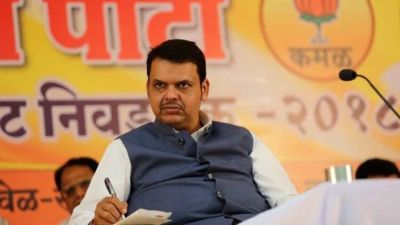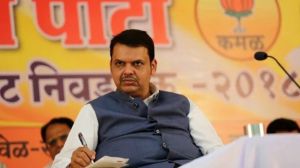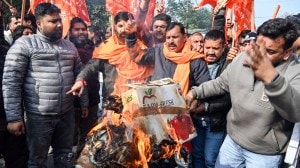Pakistan, Word by Word
The country has become the site of a mesmerising clash of personalities as well as a serious contest of ideas

Just before she was killed, Benazir Bhutto had sent the manuscript of a book to her publishers, HarperCollins. Tentatively titled Reconciliation: Islam, Democracy and the West, it is reported to be a memoir and her political manifesto. Her publishers are advancing the publication schedule, and the book may hit the stands as early as next month. Till then, here is a reading list for those interested in understanding Pakistan, a country where something unexpected is almost guaranteed to happen every other day.
Daughter of the East
An Autobiography
Benazir Bhutto
First published in 1988, the year Bhutto became prime minister of Pakistan, Daughter of the East was updated in 2007. Written in a majestic manner 8212; and with some pretty obvious obfuscation 8212; to convey her and her family8217;s connection to Pakistan8217;s destiny, the book has some uncanny parallels. For instance, amid all the talk now about the possibility of exhuming her body to investigate the cause of her death, it is interesting to read that similar demands were made after Zulfikar Ali Bhutto8217;s burial. The official version was that he was hanged on April 4, 1979, at Rawalpindi Central Jail. But rumours and workers8217; testimony at the family graveyard near Larkana, Sindh, hinted that his body showed no signs of hanging, and that he had instead been killed due to violent behaviour by officers at the jail. The surviving family patriarch too recommended that the body be exhumed so that, in Benazir8217;s telling, 8220;political advantage8221; could be maximised. She resisted, and those rumours still simmer.
Also of interest, in the updated epilogue, are her recollections of meeting Pervez Musharraf. She says she first met him when he acted as an interpreter during visits by the Turkish military, and that she declined to have him become her military secretary. She also claims to have initially turned down his promotion. She also recounts being invited, during her second term as PM, to the army headquarters to get a security briefing from 8220;Director of Military Operations Major-General Pervez Musharraf8221;. He explained that she just had to give the orders and Pakistan would take Srinagar.
And with a premonition of death that stayed with her through the book, she anticipated her return to Pakistan in 2007, wondering if she8217;d be felled on the tarmac itself. It wasn8217;t that pat, but it came close.
In the Line of Fire: A Memoir
Pervez Musharraf
Musharraf too, in this memoir that won him a handsome advance and was published in 2006 to a glitzy marketing tour, adopts a saga-like approach, tying his story to the story of Pakistan. He makes the point most emphatically by remembering how he made the journey from Delhi to West Pakistan in 1947, a little boy clutching in his arms money for the new country8217;s treasury. In this expansive book, he also writes about his first crush. But most of his ire is aimed at Pakistan8217;s politicians and he bemoans at great length the loss of the 1990s to democratically elected governments. It8217;s a challenge, put it next to Bhutto8217;s book and try to merge the two accounts of Pakistan8217;s recent history into a coherent narrative.
Frontline Pakistan:The Struggle with Militant Islam
Zahid Hussain
Hussain, a veteran journalist, published this account of the pervasive reach of extremists in government, military and civil society in early 2007. And given the rapidity with which extremism made itself violently felt thereafter 8212; in the regular suicide attacks, in the Lal Masjid standoff and in the threats to Pakistan8217;s territorial sovereignty in Swat and Waziristan 8212; it was chillingly prescient.
Military Inc.: Inside pakistan8217;s Military Economy
Ayesha Siddiqa
To understand how pervasive the Pakistani military8217;s presence is in social and economic life, read Siddiqa8217;s detailed account of the fauji8217;s business interests.
The Idea of Pakistan
Stephen P. Cohen
Along with Ian Talbot8217;s Pakistan: A Modern History, this provides all the backgrounder one would require to gain a historical and referential perspective on the political and societal changes unfolding in Pakistan.
The Reluctant Fundamentalist
Mohsin Hamid
Some extraordinary fiction coming out of Pakistan provides insights into how young Pakistanis see their country and its future. Hamid, who earlier wrote Moth Smoke, a breathtaking profile of Lahore, looks at the clash of civilisations in Pakistan, as an investment banker gives up a good job in the US to return to Lahore. As he tells the story of his life to an American over the course of a long meal at Anarkali, the reader never knows what ulterior motives the two of them may harbour in making the evening even longer.
Broken Verses
Kamila Shamsie
Karachi-based Shamsie used this, her fourth novel, to understand the legacy of the Zia years, especially the culture wars that took such a toll on intellectual and creative life. Aasmaani Inqalab, at 31, is haunted by the death of her mother8217;s lover, a protester against political oppression. As she inhabits the opportunities that come to Karachi in the new century, with television channels changing the ways young Pakistanis depict themselves, she gets very disturbing clues to the double life led by the city8217;s social elite.
- 01
- 02
- 03
- 04
- 05































